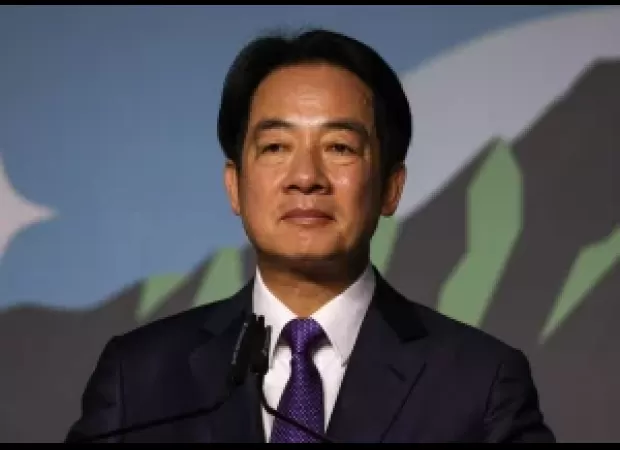China protests Modi and Taiwanese president's communication, but Taiwan sees it as unjustified.
Taiwan defends cordial exchange between PM Modi and Taiwanese President, says China's outrage is unjustified. Friendship cannot be built on threats and intimidation.

The Taiwanese government has responded to China's recent outrage over a friendly exchange between their President, Lai Ching-te, and Indian Prime Minister Narendra Modi. They believe that China's strong reaction is unwarranted and that threats and intimidation only harm potential friendships. The Taiwanese Foreign Ministry made these comments in light of China's protest against any official interactions between Taiwan and countries that have diplomatic relations with Beijing.
In a statement released on social media platform X, the Taiwanese foreign ministry expressed their disappointment with China's actions. They firmly believe that China's anger towards the friendly exchange between two democratic nations is unjustified. The ministry added that Taiwan remains committed to building strong partnerships with India, based on mutual benefit and shared values.
The exchange between Modi and Ching-te occurred when the Taiwanese President congratulated Modi on his party's victory in the recent Lok Sabha polls. In his message, Ching-te also expressed his desire to strengthen the growing relationship between Taiwan and India. He hopes to collaborate on various sectors such as trade and technology, contributing to peace and prosperity in the Indo-Pacific region.
Modi responded to the congratulatory message by thanking Ching-te and expressing his eagerness to work towards a mutually beneficial economic and technological partnership. However, China's reaction to this exchange was not positive. At a media briefing in Beijing, Chinese foreign ministry spokesperson Mao Ning stated that China had protested to India about the matter. China views Taiwan as a rebellious province and insists on its unification with the mainland, even through the use of force if necessary.
Mao clarified that China does not recognize Lai Ching-te as the President of Taiwan, and they oppose any official interactions between the Taiwanese government and countries that have diplomatic ties with China. She emphasized that there is only one China in the world and that Taiwan is an integral part of the People's Republic of China. Mao also reminded that the one-China principle is a universally acknowledged norm in international relations and a consensus among the global community.
Furthermore, Mao reminded India of their political commitments to China and urged them to recognize, be concerned about, and resist the political agenda of the Taiwanese government. She stated that China had already protested to India about this matter and expects them to take appropriate action. The Taiwanese government's response to China's reaction shows their determination to continue building strong partnerships with India and promote peace and stability in the region.






